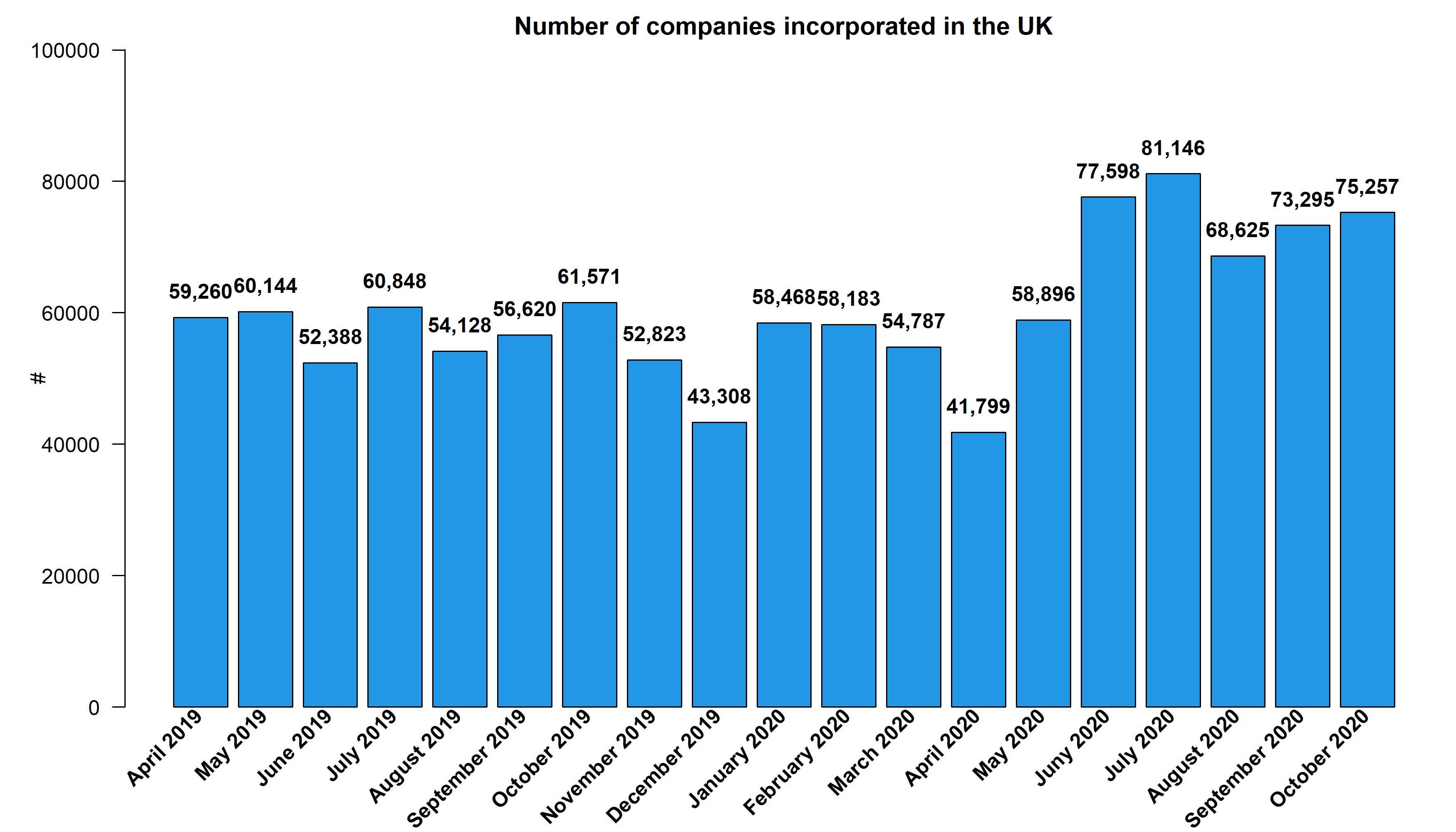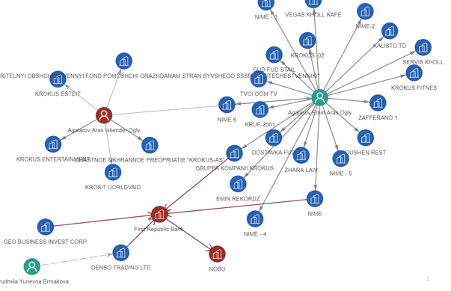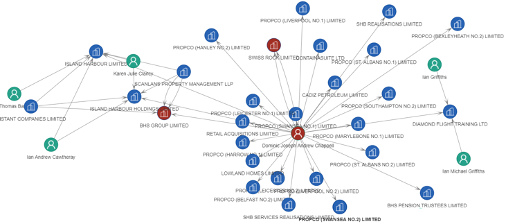
Most European countries are preparing for a second lockdown that might last until March 2021. The impact on the real economy will be devastating, and the number of job seekers is soaring by the day. For some, the only available avenue is to start their own businesses, given the fact that many governments offer special support packages for small and medium enterprises. The United Kingdom experienced since the pandemic outbreak a sharp surge in the number of newly registered companies, representing an increase of more than 15% compared to the same period of the last year. The only issue is that since the first lockdown, high-street British banks practically do not accept new business clients. Thus, many entrepreneurs find themselves in a hiatus.
The nightmare does not stop here. Some banks are shutting down their services for business, forcing, entrepreneurs to look for other providers of banking services. Neobanks, including Revolut, Starling, Monzo or Tide try to fill the gap and to onboard the new wave of clients. But, why traditional banks ceased to exert their natural function of supporting the SMEs?
The answer might be more thorough than we think. In an environment where the demand for banking services is high, and the KYC is fully digitalized the risk of onboarding the wrong clients is high. On the one hand, banks are dealing on a daily basis with new stories from the Fincen files, where they are portraited as facilitators of financial crimes. Thus, the easiest solution is to say: No person, no problem.
On the other hand, Neobanks are also starting to turn down clients, because they have the gut feeling that soon regulators will begin digging in their portfolios and inflict penalties. There is an entire generation of entrepreneurs that for various reasons, is deprived of banking services. What will they do? Their only way to continue is to test all type of alternative banking solutions offering virtual accounts issued by more or less trustworthy platforms. In the aftermath, the current strategy adopted by banks does not solve the issue of financial crime but moves it in new unchartered areas. Seemingly, in the long-run, the high street banks will offer premium service accessible to a limited number of chosen clients.

“Everyday is a bank account, and time is our currency. No one is rich, no one is poor, we've got 24 hours each.”
Christopher Rice, American author
Fincen Files: Sushi for oligarchs
Buzzfeed brings new insights from the Fincen leaks concerning a few prominent Russian oligarchs that had been allegedly involved in the Russian hack of the 2016 US elections. The Agalarov clan is close to the Russian president's inner circle and was part of the Muller investigation on Trump's relations with Russia. New revelations point at Nobu, the world's most recognized Japanese restaurant and its joint venture with Crocus Group, a business conglomerate controlled by the Agalarov clan. When Nobu wanted to expand its chain of restaurants in Russia, several of its lobbyist including the famous actor Robert de Niro got in touch with Emin Agalarov. He intermediated the opening of two new Nobu restaurants in Moscow. Obviously, the deal involved over time financial transactions between the American entity and Russian based firms. The business relationship started to dwindle when allegations about Agalarov's role in the 2016 US election became public.
Some buffer companies based in the United Kingdom and Belize were used to circumvent any potential alerts of the first line checks. Nevertheless, the First Republic Bank issued a few SARs concerning transactions made on behalf of Nobu.

VAT fraud: Swiss Rock Limited
Dominic Chappell (DOB: 26/11/2020) was sentenced to six years of prison for defrauding 2.2 million pounds on both income tax and VAT. Chappell was sitting at the top of a complicated pyramid of companies, resulting from the acquisition of the retail chain BHS from the billionaire Sir Philip Green for 1 GBP in March 2015. Chappell claims that all his troubles come from BHS's bad shape inherited from Sir Green. The situation unravelled while he was the owner of the chain, and therefore, he supports the consequences. Moreover, BHS's pension fund was left with a massive deficit, thereby leaving thousands of employees with an uncertain retirement situation. The Court justified its decision by the fact that Chappell defrauded tax through his personal service company, called Swiss Rock Limited. HMRC is very serious about VAT fraud, and over the past decade, all fraudsters involved in such wrongdoing were severely punished.

Sanctions: Belarus
The European Union decided to apply a new set of sanction against Belarus's president Lukashenko and over a dozen individuals considered as part of his inner circle. The sanctions aim to put more pressure on the Minsk regime for the violent repression of street protests. This new set of sanctions targets Moscow indirectly. The current sanctions inflicted by the US and the EU against the Russian Federation is circumvented through intermediary firms situated in Belarus. If this circuit is wiped out, then Russia risks to finds itself completely isolated from its Western partners.
Word on the street: GTA gang
The link between terrorism and organized crime is a topic that seems to be voluntarily avoided by mainstream media. But, the reality is going way beyond imagination. The Russian justice condemned the leader of the GTA gang to over twenty years in prison for organized crime and terrorism. The gang was founded in Moscow in 2012 by several Uzbeks and Tajiks bandits including Ibaydullo Subkhanov (alias Rustam Usmanov). They started to hijack expensive cars (hence the name GTA gang) in the chic neighbourhoods of Moscow, but due to the increasing pressure of law enforcement on the Russian organized crime Subkhanaov & Co needed to find a safe harbour. In the early 2010s, the Russian underworld suffered several mutations.
On the one hand, the law became merciless with the traditional vhors. On the other hand, the gangs were primarily dominated by criminals from the Caucasus and Central Asia. In the 2010s, the rise of ISIS constituted a new opportunity for many criminals from the ex-Soviet states. They started to recruit soldiers for ISIS massively. Moreover, the regions of Syria and Iraq governed by terrorists were the right hiding place in case the Russian justice was tracking them. Thus, many criminals embraced ISIS's ideology going back and forth between the Levant and Russia.